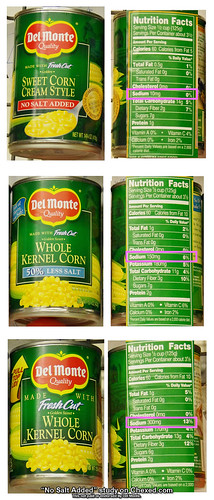For years, we’ve heard various health authorities recommend that we consume less salt in order to reduce our risk of high blood pressure, stroke and heart disease. Though obtaining accurate data on sodium consumption is not easy, it’s been established that most Americans consume substantially more sodium than is recommended. But what does the science say about how salt impacts the health of your heart?
The Argument for Less Salt…

The 2010 US Dietary Guidelines for Americans puts forth 2,300 mg of sodium per day as the recommended amount for most people. It’s recommended, however, that African-Americans, people over 51 years of age and those with hypertension, diabetes mellitus or chronic kidney disease limit their daily sodium intake to 1,500 mg. (According to national government survey data, nearly half the US population—47%—meet these criteria.)
The American Heart Association’s (AHA) sodium guidelines call for all Americans to limit sodium intake to no more than 1,500 mg per day. Even the World Health Organization has identified sodium reduction as a means to reduce the increasing costs of treating conditions such as heart disease and hypertension.
On the Other Hand…
But there are other groups who say that the emphasis on sodium is misplaced, pointing to some studies that indicate that lower sodium intake is associated with higher blood cholesterol and triglyceride levels, as well as a higher incidence of cardiovascular disease.
There is also the issue of “salt sensitivity” to consider. Higher sodium consumption seems to send some people’s blood pressure readings sky high, while having no impact on other people. There’s no way to test for salt sensitivity, though that may change in the future.
The bottom line:
It’s well-documented that most people take in far more sodium than their bodies need. Despite indications that salt intake doesn’t effect everyone’s blood pressure in the same way, there is more than just blood pressure to take into account. There are many, many studies that clearly show a link between excess sodium and high blood pressure, stroke and cardiovascular disease. And there are also plenty that reinforce the ability of sodium reduction to prevent and treat these health problems. In short: the prudent move would be to curb your sodium intake.
How to be More Sodium Savvy:
Over 75% of our sodium intake comes from processed foods and restaurant foods. Here are three ways to dial down the sodium contribution of these food categories:
- Eat out less frequently (that would also save you money)! Split an entrée, which would cut both calories and sodium in half.
- Plan meals that emphasize fresh foods, and incorporate plenty of fruits and vegetables. Look for recipe ideas on the Guiding Stars website.
- When selecting processed foods, opt for those that say “reduced-sodium,” “low-sodium,” or “no added salt” on their labels.